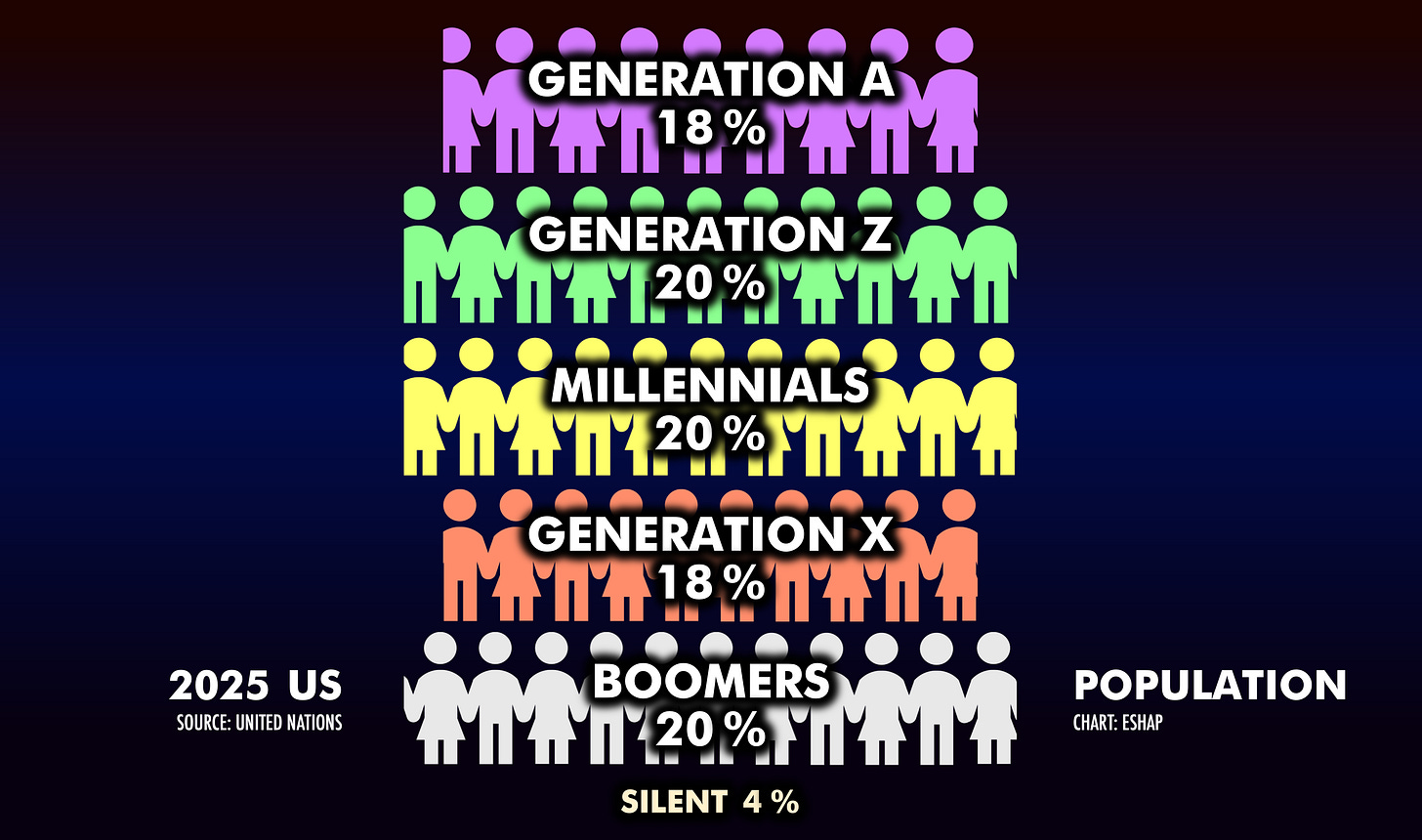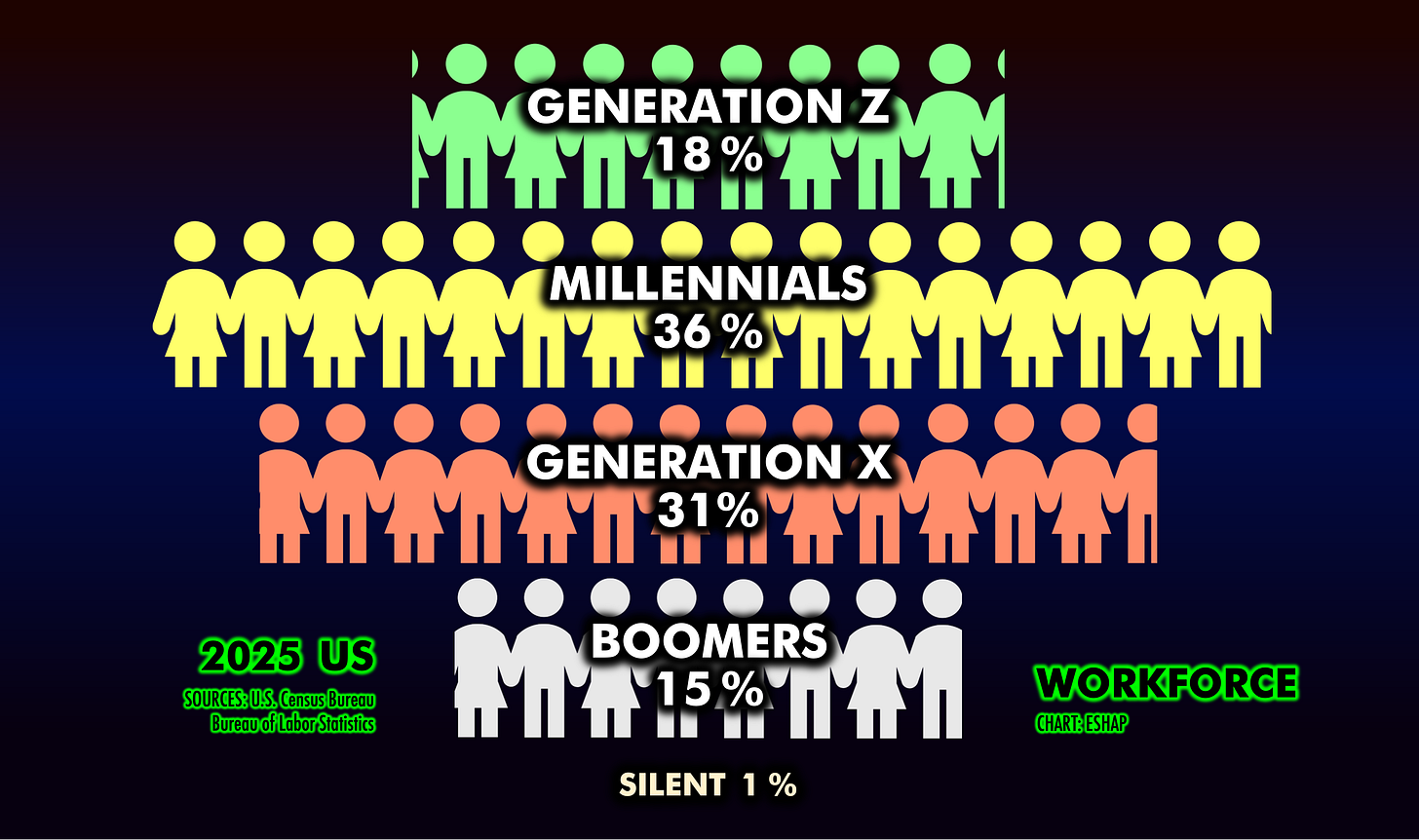MEDIA: THE GENERATION GAP
MEDIA'S DUELING ECOSYSTEMS
Good Memorial Day Weekend Peaceniks.
It’s more important than ever to remember the sacrifices made by so many Americans in uniform to keep all Americans and all our rights free. It’s also vital to note that for more than forty years, Military service has been entirely voluntary. Everyone in our armed services chose to serve. To those who have stepped forward and stepped up, I salute your courage and loyalty — not to any one person but to our country and our Constitution.
It Is also a long weekend, and I am sending this edition to you on Sunday, because there’s a lot to unpack below, and I wanted you to have some free time to digest it. This is a brand new report, detailing some data and trends I’ve been studying for some time, exploring the bifurcation of our collective Media consumption, as divided by the different generations we belong to. Enough build up, here’s the report…
MEDIA’S GENERATION GAP
Before we discuss Media usage among various generations, we must first understand: Age is different from generation. Demographics do not age, generations do.
Here is how the world’s population breaks down by age.
63% of the world’s population is under 40. If you are reading this and are over 40, welcome to the minority. However, the population of the 1-40 age-span changes over time. People age into, and out of, age-based demographics. For example, the youngest Millennials turn 31 this year, the oldest are turning 45. Millennials are no longer kids, they have kids.
NOTE: There are varied opinions on when the world’s generations begin and end. For the purposes of this study we use the delineations laid out by USC and the Center for Generational Kinetics.
In this context, here is the planet’s population by generation:
Generationally, in 2025, our three youngest generations, Millennials, Gen Z, and Gen Alpha, now represent 69% of the earth’s population — more than two thirds of all people. The U.S. is older than much of the world, so America’s generational breakdown breaks down differently.
Still, 58% of the U.S. population are Gen Alpha, Gen Z, and Millennials. Additionally, Gen Z, and Millennials now comprise 56% of the American workforce. Today, Millennials hold a larger share of employment in the U.S. than Gen X, and Gen Zers hold more American jobs than Boomers.
Why does that matter? I’m glad you asked!
Millennials are the first generation to spend their formative years in the glow of the internet. Gen Z are the first generation raised on a diet of smart phones and Social Media. Gen Alpha is the first generation born after the full infiltration of all these technological wonders and dangers. The cultural mindset of these generations have been shaped by instant access to the entire world’s information.
Importantly for this report on Media usage, the three youngest generations have always known a far greater speed and breadth of content than their parents or grandparents. In the last four decades, the rate of technological change has accelerated at unparalleled pace. In most cases, Millennials, Gen Z, and Gen Alpha have kept up with that pace, whereas the majority of Gen Xers and Boomers have not.
This has created a schism in the cross-generational consumption of information and entertainment, resulting in two very different Media ecosystems: One for Gen X and older; and another, distinctly divergent sphere for those Millennial and younger.
Prior to 2025, my assumption was that the varied media usage was divided by age: Over 35 and under. However, over the last year, I have noticed that the Media boundary seemed to be shifting. So, for the past six months, I have been diving deep into diverse data on Media consumption. In each case, when we looked closely, it was clear that the divide was not related specifically to age, but rather to generation. The biggest shifts and rifts in Media usage tracked along with the eldest cohort of Millennials — who turn 45 this year.
Keep reading with a 7-day free trial
Subscribe to Media War & Peace to keep reading this post and get 7 days of free access to the full post archives.








